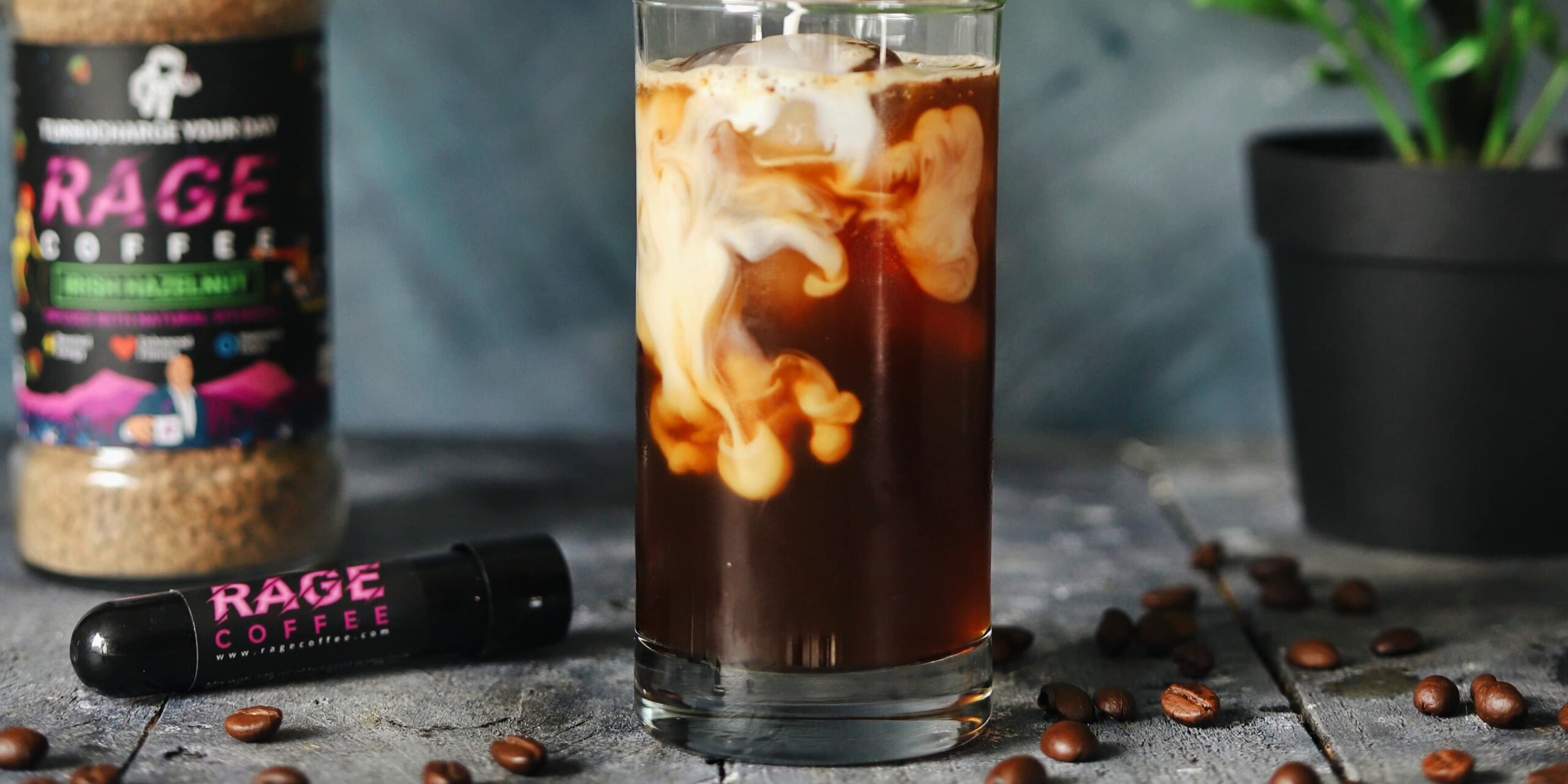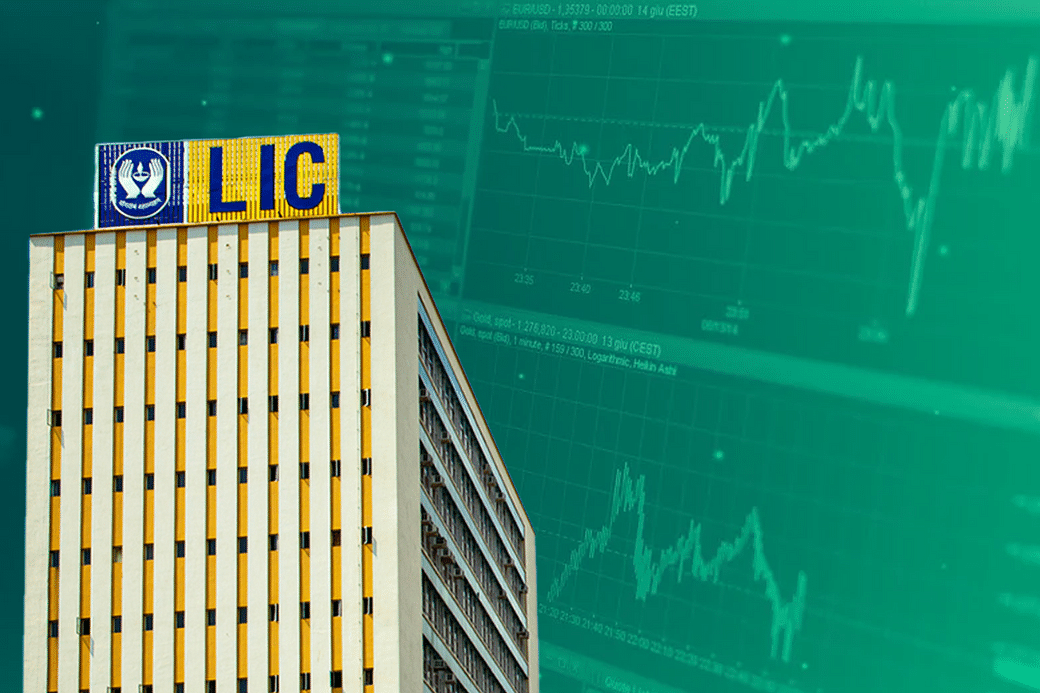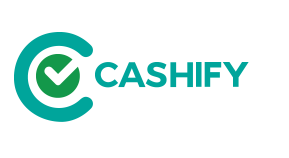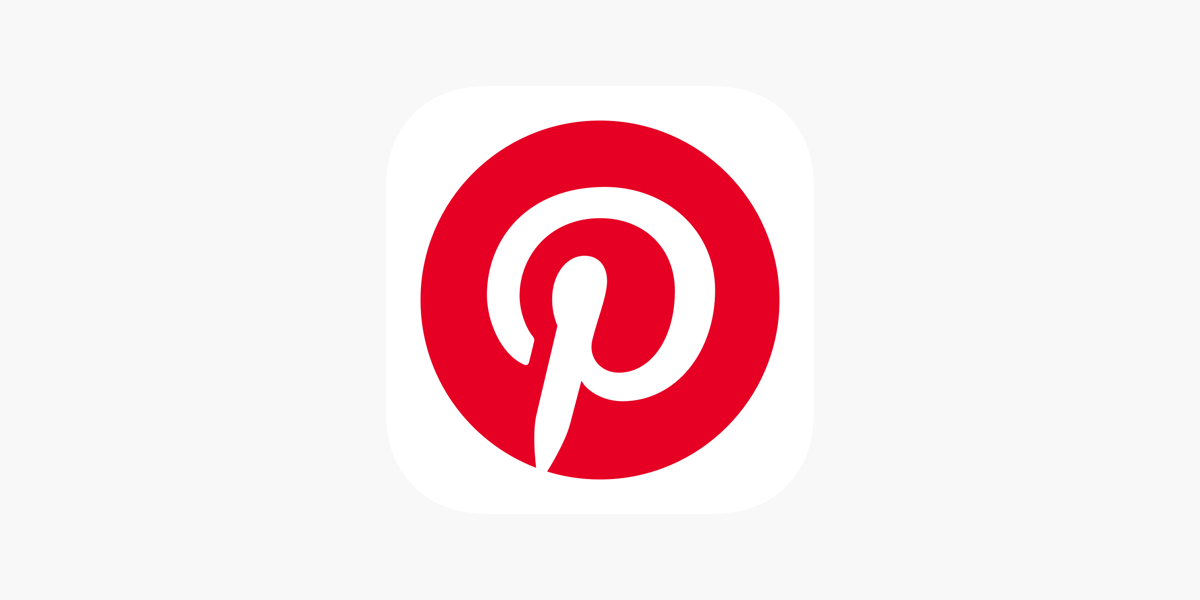Bharat Sethi, the founder of Rage coffee, is set to rewrite the rules of the FMCG sector using caffeine.
India is the largest coffee exporter, but only 14% of the Indians have tasted it yet! The coffee market is duopolistic, with Bru and Nescafe trying to compete to gain market share. But these brands are popular as they have a strong distribution power. The sale is just because they are on shelves.
Making of Rage Coffee
Research suggested the coffee market in India is worth ₹ 12,000 crores. Just imagine if, Rage took a part of this massive market by just displacing the distribution power. This thought triggered Bharat Sethi to create a coffee brand that will push the average consumer spend to ₹ 100 and give a 5-10x better experience.
The product was launched in 2019. It was a small-batch crystallized coffee with six plant-based vitamins which effectively worked with caffeine to give a distinctive kick. It is the first company to use plant-based vitamins in coffee. Also, Rage is gluten-free with no added sugar, and the products are vegan-friendly. The ingredients are a real game-changer.
The founder thinks that there was no innovation or brand building in the coffee space for years. The company noticed a few weak areas in the supply chain, manufacturing, distribution, and ingredients. So Sethi decided to enter the untapped market through online mode.
Sethi never opted for traditional distributional channels. Firstly, there was no space for offline disruption in the FMCG space. They would build offline stores once the brand was well created. They were looking forward to building a data-driven FMCG company from the beginning. Secondly, getting data offline becomes difficult because no one knows who is the buyer and what customers think of the product. Thirdly, online reach is much higher than offline because there are no middlemen. One can reach directly to the customers.
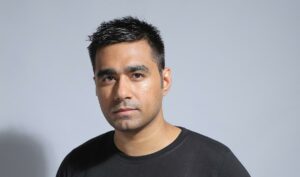
Hotshots of Rage coffee
The three-year-old startup has experienced exceptional growth. The unique coffee shots created noise in the market. They sold 75,000 units in the first month, and the numbers kept on doubling every month. Fitness enthusiasts and gamers use Rage coffee before workouts and in offices.
The company claims to have sold over five lakh products. 35% are repeat orders from its website, and 40% of revenue gets generated from repeat buyers. The company follows an omnichannel approach where 50% of the products are online.
The company has a robust online presence in Mumbai, Delhi, Pune, Bengaluru, Hyderabad, and Chennai. They have massive sales in offline stores built in Tier-II cities like Jaipur, Ahmedabad, Indore, Nagpur, etc.
Their target customer is individuals between 16-35 years who think coffee is a go-to beverage.
Sethi has had an entrepreneurial zeal since his college days. He is an expert in targeting and reaching customers. He started his first e-commerce venture in 2011 when the segment was in its initial stage. B2C was not prominent in online mode. In 2012, he sold branded merchandise directly to customers. The target customer base was 15-25 years. This D2C business went well.
He exited from the business in 2016, when the e-commerce space was gaining popularity. Later, he started a B2B e-commerce company, but it did not go well.
Lastly, he entered the e-commerce space in the FMCG segment, which did not face disruptions, and the market was picking up.
Sethi found that the herbal product market is nascent and will only go north. The only way to tap this market is through coffee. Coffee is a commodity that people get emotionally attached to and enjoy.
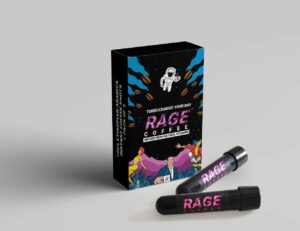
Rage Coffee vs Café
The founder believes that Rage coffee can compete with the experience of café. The aim is to make a flavoured and functional product. The team spent half a year travelling the world to source materials and make an accurate coffee.
Sethi believes that caffeine and plant-based additions can be great tasting and selling points. No other product in the market guarantees 90-120 grams of caffeine. To bring kick in the coffee, they added high levels of caffeine. It also provides functional purposes such as energy through plant-based products, like turmeric and cloves. All the ingredients are US Food & Drugs Association and European Medicines Agency certified.
The plant-based products have health benefits like reducing anxiety and fatigue, improving blood flow, increasing stamina, etc. These 100% natural products are not readily available in diets.
Rage Coffee has a diversified portfolio- Instant Coffee, Coffee Shots, Ground Coffee, and Cold Brew Coffee Bags. The readymade coffee shots come in biodegradable vials. They are convenient to carry, easily consumable and affordable.
Rage is the first functional coffee brand in India. They are the frontrunners of the trend of moving towards healthy coffee options.
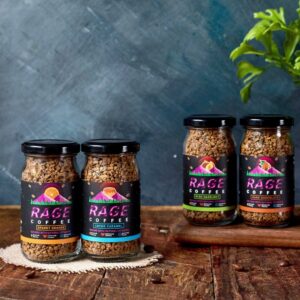
Growth opportunities
According to India Brand Equity Foundation, India is the fifth-largest exporter and sixth-largest producer of coffee in the world. 70% of the total coffee produced in India gets exported. India represents 3.14% of the global coffee production.
India exported $719.50 worth of coffee between April 2020 to March 2021.
Digital FMCG space is expanding due to the omnichannel approach. Rage coffee’s 50% revenue comes from hyperlocal and offline stores and 35% from D2C business.
Sethi used ₹75 lakhs of his savings and ₹10-15 lakhs loans. December 2019, he raised ₹1.54 crores. Then, in mid-2020, the company raised revenue-based financing. In January 2021, they raised six crores. Later, in August 2021, the startup raised $5 million as Series A funding from Sixth Sense Ventures.
Refex Capital, 9 Unicorns Venture Capital Fund, Emarson Computers, CC One Venture labs, Darshan Deora, KRS Jamwal are some investors. The company plans to raise additional capital to increase production, distribution, expand online and offline, launch products, and hire more people to take the brand to the next level.
Sixth Sense Ventures believes that the segment will witness faster penetration because of the increasing café culture and changing preferences within hot beverages. Rage coffee is well-positioned to create a strong brand affinity and resonate with new-age customers.
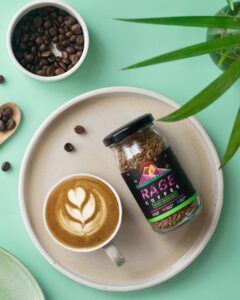
Conclusion
During the pandemic in 2020, there was an increase in at-home consumption of packaged products.
Coffee and caffeine-based products boosted the energy levels of people working from home. During the lockdown, Rage coffee saw a 300% surge in sales.
By the end of 2021, the coffee maker startup is looking for 3x growth in revenues and reaching 3000 retailers. It is targeting ₹35 crores revenue in FY22. Their vision is to create annual recurring revenue of ₹ 500 crores by the end of 2025 with the help of innovative coffee products.

